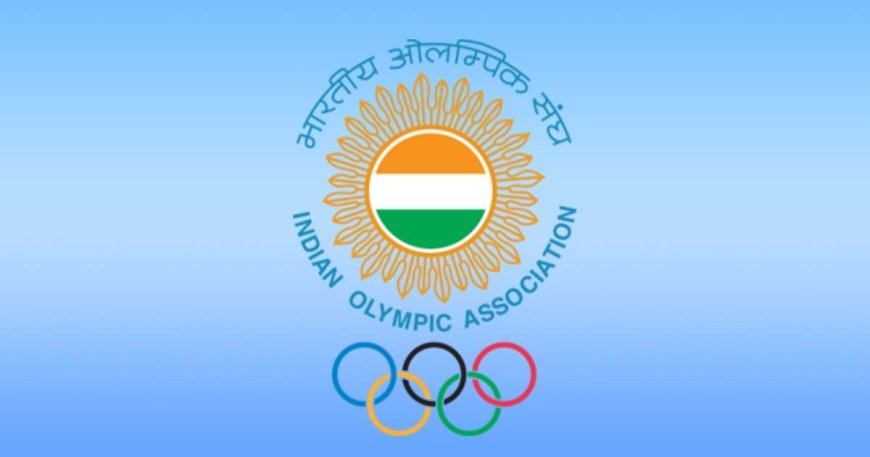IOA Cleans House, Tackles Doping to Boost India’s 2036 Olympic Bid
The Indian Olympic Association launches anti-doping education and resolves internal disputes to support India's 2036 Olympic bid, showcasing a united, reform-driven approach.

Mumbai is gearing up for the 2036 Olympics, but before any medals are cantered in Ahmedabad, the Indian Olympic Association (IOA) had to show it could run a clean, united campaign. On July 24, the IOA took decisive steps: ending internal rifts, ratifying its CEO, and launching a robust anti‑doping education drive. The announcement, spearheaded by IOA President P.T. Usha and supported by prominent council members, signals India’s earnest commitment to hosting an ethically sound Games The Straits Times+7Reuters+7The Economic Times+7.
A Unified Front Amid Internal Feuds
The IOA had been plagued by internal power struggles, particularly surrounding the official appointment of CEO Raghuram Iyer, dubbed a divisive move due to his ₹20 lakh monthly remuneration. However, on July 24 the Executive Council put its reservations aside—following intervention by Sports Minister Mansukh Mandaviya—ratifying Iyer's position and finally presenting a consolidated leadership structure Hindustan Times+4The Economic Times+4Editorji+4.
At a joint press briefing, P.T. Usha emphasized unity: “In the interest of the nation, we have resolved all minor differences… and will strongly stand united and bid for the 2036 Olympic Games.” Council member Harpal Singh echoed the sentiment, noting that past disagreements "were probably exaggerated" and reaffirming the IOA's new cohesion Reuters.
Time to Tackle Doping: Education and Enforcement
Simultaneously, the IOA launched a seven-member anti-doping panel headed by former Davis Cup star Rohit Rajpal, along with former shuttler Aparna Popat and sports medicine specialist Dr. P.S.M. Chandran Yahoo News+10The Economic Times+10The Statesman+10. This follows the IOC’s warning during India’s Lausanne visit, citing "high doping cases" in recent years The Indian Express+6Reuters+6The Economic Times+6.
Rajpal underscored the worrying rise in anti-doping violations, attributing much of the problem to “organized rackets” distributing substances to unsuspecting athletes Reuters+1Business Standard+1. The panel plans to recommend that the government criminalize the selling of performance-enhancing drugs—pivoting from mere prohibition to prosecution Business Standard.
Education at the Core of the Strategy
A cornerstone of the IOA’s anti-doping initiative is education. They’ve launched grassroots awareness programs designed to guide athletes, coaches, and support staff, clarifying permissible versus banned substances. This educational thrust aligns with the mandate of the National Anti-Doping Agency (NADA), India’s statutory body under the National Anti-Doping Act 2022 Reuters. By empowering athletes with knowledge and updating coaches on best practices, the IOA aims to drastically reduce violations and build a culture of clean sport.
Aligning with the IOC and National Legislation
The IOA’s reforms come at a critical time. During its Lausanne visit, the IOC flagged three key concerns—the association’s governance, doping record, and India’s Olympic performance Press Information Bureau+2The Indian Express+2Reuters+2. Consequently, India is now in the “continuous dialogue” phase with the IOC’s Future Host Commission, working to demonstrate alignment with Olympic standards Reuters+4Press Information Bureau+4Press Information Bureau+4.
To support these efforts, IOA has expressed support for the National Sports Governance Bill recently introduced in Parliament. If passed, the bill will establish a National Sports Board to oversee federations and ensure compliance with international statutes Rediff+3The Statesman+3Editorji+3. IOA joint secretary Kalyan Chaubey stressed that the legislation is meant to enhance—not diminish—the IOA’s autonomy, and will defer to international governing bodies if conflicts arise The Economic Times+3The Statesman+3Editorji+3.
Mission 2036: More Than Just Hosting
Announcing “Mission 2036,” P.T. Usha articulated the IOA’s broader vision: host the Olympics and build a sustainable, athlete-first sports system in India Hindustan Times+7The Statesman+7Reuters+7. CEO Raghuram Iyer echoed this focus, noting the priority placed on sustainability, athlete welfare, and a long-term legacy Editorji+4Reuters+4The Economic Times+4.
Iyer emphasized ongoing dialogue with the IOC to solidify India’s position as a credible bid contender and noted that while host selection is paused under IOC President Kirsty Coventry, more entrants like Qatar are reinforcing the global competitiveness of the 2036 race Hindustan Times+2Reuters+2The Indian Express+2.
Global Perspective and Benchmarking
India’s campaign isn’t without stiff competition. Countries including Indonesia, Turkey, Chile, and Qatar are also vying for the 2036 Games Reuters. Sebastian Coe, former World Athletics chief, has encouraged India to clarify the Games’ legacy—stressing that political backing and transparent communication will be critical to success Reuters.
Moreover, the World Anti-Doping Agency (WADA) reported a 3.8% positivity rate in India’s 2023 sample tests—the highest among nations processing over 5,000 samples—second only to Russia The Statesman+4Business Standard+4Editorji+4. These figures make IOA’s reforms not only timely, but essential.
Facing the Road Ahead: Genuine Reform or Window Dressing?
Skepticism remains. The IOA has faced allegations of mismanagement and past governance failures, including a suspension by the IOC in 2012 Wikipedia. Many will judge India's bid by its ability to translate announcements into systemic changes—annual doping figures, enforcement of NADA guidelines, and the prosecution of doping rackets.
To maintain momentum, the IOA must operationalize its anti-doping panel’s proposals and secure parliamentary approval for the Sports Governance Bill. Equally important will be investment in monitoring technologies, coach training, and grassroots testing infrastructure.
Conclusion: Turning a New Leaf
India's 2036 Olympic aspirations hang in the balance. By presenting a unified IOA leadership, launching an aggressive anti-doping education campaign, and aligning with legislative reforms, the country has begun to lay the groundwork for a credible bid. Whether it’s enough to sway the IOC—and to catalyze a lasting shift in India’s sports culture—will hinge on sustained implementation.
What began as an attempt to host an international event has the potential to evolve into a deeper transformation: embedding clean sport, transparent governance, and athlete-centric systems at every level. If India follows through, “Mission 2036” could mark the beginning of its emergence as a true sporting powerhouse—rather than just another candidate.




















































